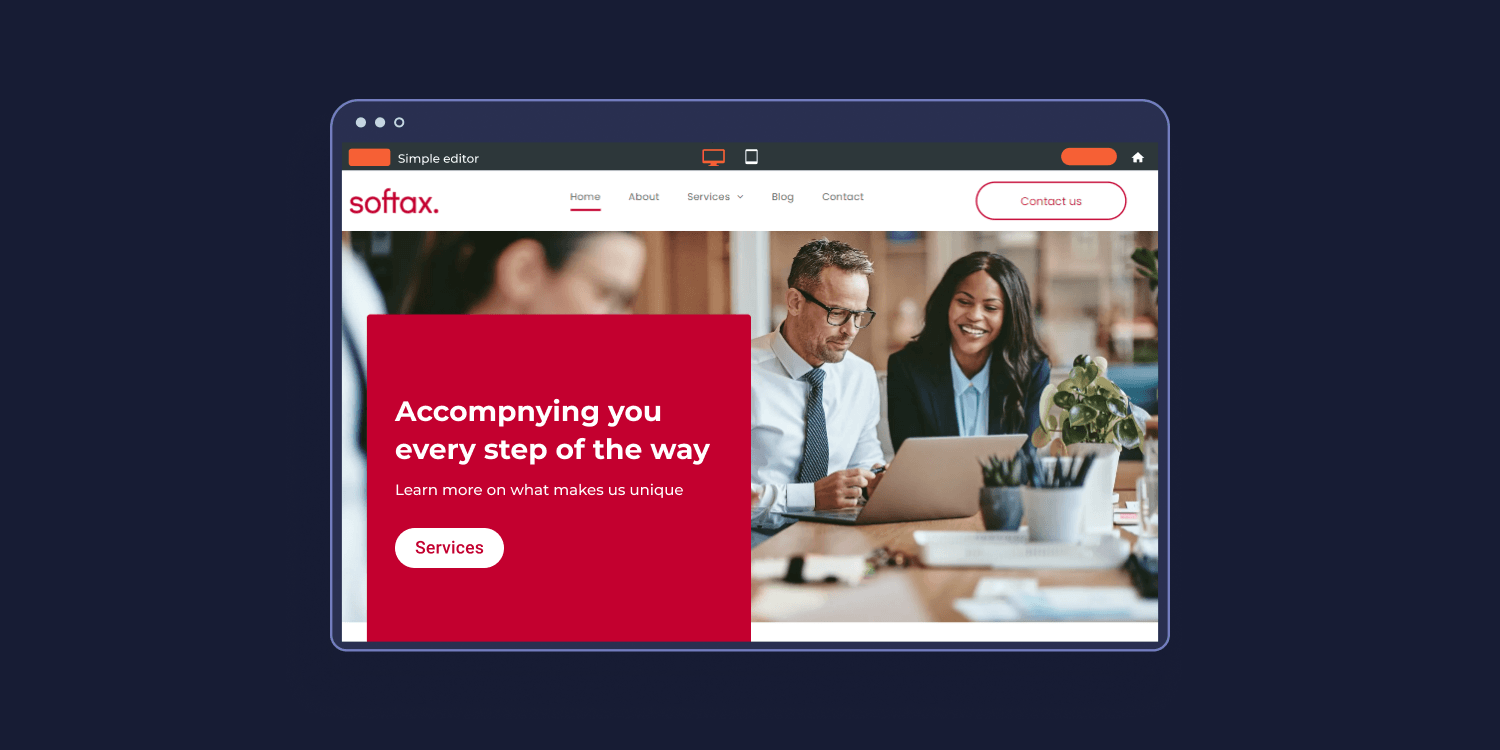If clients are the lifeblood of your
agency (and they are), then building strong client relationships is key to your success.
The better your client relationships are, the more likely you are to acquire new clients, not to mention retain existing ones and foster long-term relationships.
Did you know that it is
6–7 times more expensive for companies to attract new customers than to keep existing customers?
Another fun stat: Increasing customer retention rates by 5% raises profits by 25% to 95%, according to
Harvard Business School.
So building client relationships can have a huge effect on your bottom line.
And the best part is, a lot of it is up to you—with enough hard work and dedication, you can foster client relationships that will last for years to come.
But you must put in the work, and remember that building client relationships doesn't just happen overnight.
This article will show you how, as an agency, you can utilize various strategies to cultivate strong client relationships.
But before we delve deeper, let’s review why it’s important in the first place.
The importance of strong client relationships
Strong client relationships can lead to increased customer loyalty, more referrals, and repeat business, which ultimately leads to greater success and profitability.
Clients who feel empowered by their agency partner tend to stay with the agency longer, resulting in reduced churn rates and greater security in terms of recurring income.
Additionally, when clients trust an agency they are more likely to provide honest feedback, which can be invaluable for the agency's growth and development.
It is also important to note that strong client relationships are not only beneficial to the agency but will also benefit clients in a number of ways.
Clients who feel supported by their agency partners often experience greater satisfaction with the services they receive, and this can translate into higher customer loyalty and engagement rates.
Additionally, when feedback is provided on a regular basis, it can help an agency better understand its client's needs and make sure that the services they offer are consistently meeting those needs.
Now that we are (hopefully) convinced that investing in strong client relationships is important, let’s examine the top strategies to do so, starting with choosing the right client.
Top strategies for agencies to cultivate strong client relationships
1. Choose the right clients
Yes, that is definitely the first step.
One of the best strategies to building good client relationships is knowing who to work with and who not to!
Not every client is a good fit for your agency.
The problem is telling which is right and which is wrong.
Well… you can’t always tell, but you sure can try to minimize risks.
Here are some tips for choosing the right clients:
- Do your due diligence—Be sure to invest some time into getting to know clients before signing any contracts. Research their company, read reviews, request referrals, ask questions and get a good feel for how they operate before hopping on board with them.
- Don't be afraid of saying no—It can be tempting to take on any and every client that comes your way, but this is not always the best course of action. If you don't think they would be a good fit, it's better to politely decline new business rather than set yourself up for failure by taking on a client that may not work out in the long run. This is true even after signing a contract. If something feels off during the onboarding process, don’t be afraid to walk away and look for another opportunity, even if it means taking a financial hit in the short term. It’ll save you from a lot of headaches and heartache (and money!) down the line.
- Choose the ones that will be there for the long haul—It’s important to choose clients that are likely to want long-term engagement and value what your agency has to offer.
- Test run—If possible, consider doing a test run of the agency-client relationship by signing a short-term agreement for your first project together. This will help you assess their commitment and approach to working together, and see how they interact with agency staff during the process.
- Have a detailed contract in place before work begins—All payment terms, timelines, deliverables, and responsibilities should be outlined to avoid any disputes.
In addition to these tips, watch out for warning signs that indicate you should pass on a potential job and move on to greener pastures. Here are some of the biggest red flags agency owners should look out for when deciding whether or not to choose a certain client:
- The client refuses to sign a contract, insisting they know “the way things work” already:
If your agency relies on contracts, then signing one is non-negotiable. A client refusing to do so could imply that they’re hiding something, like an unwillingness to pay you what you're worth or a lack of commitment to achieving their own goals.
- The client has unrealistic expectations:
When a client comes to you expecting the impossible, it’s a surefire warning sign. If they want results that are simply not achievable (or are totally unreasonable) in their given timeframe or budget, then it’s best to pass on the project.
- The budget is too low:
Although agency owners should be willing to negotiate when necessary, some clients may try to take advantage of your services by offering ridiculously low rates. Be aware that these types of clients usually won't take the success of your agency seriously, so it's best to find someone else who values your worth more.
- The client doesn't have a clear plan:
Working with someone without a direction or focus is not only a waste of your agency's time, but it could also potentially damage your reputation. Before taking on any project, make sure that the client has a concrete idea of what they want to achieve and how they plan to get there.
Ultimately, you should trust your gut when it comes to choosing the right (or wrong) clients. If something doesn't feel quite right, then that’s usually a huge warning sign and you should move on to more promising prospects instead!
2. Make contracts that are clear. Crystal clear
Good contracts are more than just paperwork.
When contracts are clear and easy to understand by all parties involved, there's less room for confusion or misunderstanding down the line.
That’s a great opportunity to set the tone for a solid relationship from the start.
If you don’t currently have a contract in place, or you’re thinking of revising your existing contract, there are many agency agreement templates available online. In addition, here are some tips for crafting good contracts:
Be specific—But how specific do you need to be? The short answer: very specific! That's why good contracts not only include the who, what, when and where; they also include clauses that specify the details of the agreement between both parties.
- Make sure to include clearly defined scope of work and deliverables. This is essential for setting proper realistic expectations between the client and the agency.
- Outline how payment will be handled, including what amounts will be due when, and in what format (e.g., wire transfer, credit card). This can help ensure payments are made on time and avoid misunderstandings around payment terms down the line.
- Changes and revisions: It's good practice to define a fixed number of free changes allowed within a set timeframe. Anything outside of this should be charged for.
It’s also important to define how changes or additions to the project will be handled. This is where good contracts can really save you from headaches associated with scope creep. Make sure your clients know that any additional work outside of the original scope may incur additional charges.
Consider adding clauses related to confidentiality agreements or intellectual property rights. These can help protect both you and your client in the event of a dispute or breach.
- Include an exit plan in case things don’t work out as planned. This can save you time, money and headaches later on.
Include refund policies in your contract if necessary, so that clients know exactly how their money would be handled if something were to go wrong during the course of the project.
Hot from Duda community:
What are the two or three things in your contracts 📃 that have saved you in the past?
3. Make working with you a breeze
True, you can’t satisfy your clients' every wish and desire, but you can make life easier for them.
It’s a state of mind, more than anything else.
Your clients are very busy, so go above and beyond to save them time and effort. They will appreciate it.
For example, are you writing them a long email? List clear action items for them to follow and a timeline for each deliverable on their end.
If you are managing multiple tasks, share a collaboration tool or a project management software that will allow them to understand each task’s status.
Always think about how to make it easier for them to work with you and be flexible with their requests. I know, you’re already set in your ways, but maybe it’s time to shake things up and find creative solutions.
4. Really understand your clients’ goals
Rather than blindly moving from task to task without understanding the big picture, make sure you understand your clients’ goals.
It sounds obvious, but it’s really not.
It’s not just about KPIs and deliverables.
It’s deeper than that, beyond just the project at hand.
Ask questions about what they are trying to achieve and how they plan on getting there.
Understand their values, needs, preferences and resources.
Not only will this help you give them better advice and deliver more impactful results, it will also make them feel valued and appreciated!
5. Have an efficient and welcoming client onboarding process
When client onboarding is done well, it provides clients with a comprehensive introduction to your agency’s services, sets clear expectations for both sides (so you’ll be on the same page) and helps ensure that client requests are handled efficiently.
But above all that: it builds trust. After all, clients are entrusting their business goals to your agency’s hands, so you want to make sure that trust is built from the get-go. Trust can make or break your relationship with the client, so don’t take it lightly.
Even if you feel that you have the perfect onboarding process in place, be sure to check out these tips; they might help you optimize your process:
Set up onboarding calls right away: It's always best practice to have an introductory call with each new client as soon as possible so that everyone can get on the same page. This is especially important when there's something unique about the client or project that needs to be discussed and understood from the start.
- Make sure your onboarding process is tailored to each individual client. Everyone likes to feel special, and that goes double when it comes to potential clients.
- Keep communication consistent while they're onboarding: A lack of response can send mixed signals, so make sure that you're available throughout the entire process and beyond! Prompt responses go a long way in building trust with clients.
- Create an onboarding checklist: An onboarding checklist is an essential tool for any agency. In the kickoff meeting, provide clients with a clear overview of the process to help ensure that everything goes smoothly from start to finish. Make sure to include each step of the way, from initial contact to delivering results.
- Ask questions: Asking questions is one of the most important steps when it comes to client onboarding. Ask clients about their goals, expectations and timeline. This will help you create a tailored experience that meets their needs.
*
Related:
Got A New Web Design Client? Ask These 10 Essential Questions.
- Provide answers: your clients want to hear from you—you are the expert. They should know they can rely on you for knowledge and advice.
- Prepare a welcome kit: Give clients a physical package or even just an email that lays out everything they need to know about working with you. This is an easy, low-cost way to set the right tone for your partnership.
- Schedule regular check-ins with the client throughout their onboarding process. This gives them peace of mind that everything is on track.
6. Set your boundaries right away
Set realistic expectations for deadlines, milestones, budgeting, clear communication methods and times, etc., so everyone is aware of their roles in making the project a success.
This way, when something goes awry (as things sometimes do!), there will be no confusion as to who’s responsible for what. It can also help ensure that all parties stay happy and productive throughout the process!
It really comes down to having healthy communication, which brings me to my next point.
7. As you well know - Communication is key. Make it structured and frequent and exceed client expectations
Both parties should understand and agree upon the parameters of the project, timeline, budget and expectations.
But it’s not just about that.
It’s also about opening a structured dialogue with your clients as a tool to help strengthen trust and ensure everyone is on the same page.
That's not to say you should bombard them with emails every day—remember, in order to set proper boundaries, you should make your communication with clients
structured, reliable and valuable. For example, set up regular meetings with action items and takeaways.
As for how to communicate, it’s a good idea to ask your clients about their preferred communication channels.
From emails to phone calls, find out which form of contact your clients prefer and stick to it. If they appreciate more personalized conversations, be sure to schedule regular catch-ups where you can talk about their business challenges in depth and come up with solutions together.
In addition to regular check-ins, clients appreciate being kept in the loop about their projects.
Whether you've hit a roadblock or come up with a creative solution, keep your clients informed of any developments and strive for transparency throughout the process. This helps build confidence in you as an agency, which can lead to more successful collaborations down the line.
Next, put in the extra effort to make sure your clients are taken care of. Never forget that clients are always looking for value. Show them you can add value beyond just completing tasks—offer advice and insight into their industry and give thoughtful solutions to problems they might have. By doing this, your clients will recognize you as an expert in your field which instills confidence in the relationship.
Finally, communicate with plenty of positivity, or in other words, smile; a little positivity can go a long way in creating harmonious partnerships.
8. Own up to your mistakes (and admit it when you simply don’t know)
Owning up to your mistakes, or god forbid, recognizing that you simply don’t know, can be a real eye-opener for your clients.
You don’t have to be perfect all the time, and admitting when you mess up or not on your game helps build trust with them and makes you more relatable!
It also demonstrates that you are open, honest, and willing to learn from any errors that may occur along the way, which is something they will definitely appreciate. Plus it shows them that you take responsibility for your actions (more on accountability later) and that their business is important enough to be taken seriously.
Owning up isn’t the only thing that counts—you need to take it one step further and apologize. Even though it can be tough, an apology is a sign of respect and humility, two qualities your clients will appreciate when dealing with your agency.
9. While you’re at it… Keep telling the truth, even if it means sharing your concerns
You should be truthful on every matter, not just about mistakes or lack of expertise.
Honesty is key in all facets of life, especially when it comes to working with clients.
There's no need to offer false hope or empty promises that can never be achieved!
Also, don't be afraid to air out any worries you may have, even if they're small. Acknowledging and addressing these issues early on will help create trust between you and your clients, while also helping to prevent future problems down the line.
10. Provide reports regularly, and again: be honest
One of the most important things you can do to build successful client relationships is to keep them in the loop and provide reports on progress.
This goes beyond just emailing reports every once in a while—it’s about making sure your reports are accurate, comprehensive, and easy to understand.
You want your clients to feel like they’re in control of their projects without having to constantly ask for updates or clarification. Taking the time to format reports that are both informative and visually appealing can go a long way in fostering trust between you and your client.
You also want to be mindful of how frequently you reach out with reports. Too much or too little contact can alienate clients or make them feel as if their needs aren’t being taken seriously. Strike a balance by sending reports that are concise and to the point, with enough detail for them to stay informed without feeling overwhelmed. Doing this will show your clients that you value their time and understand their needs. It’s also a great way to start meaningful conversations about what works and what could be improved going forward.
Want some tips for effective client reporting, check out:
Client Reporting - Your Agency Comprehensive Guide
11. Time is of the essence! Deliver on time and respond quickly
Time is extremely valuable to your clients, and being respectful of that is a sure way to nurture your relationship over time.
Being reliable with deliverables is one aspect of respecting your clients' time.
To ensure that you deliver projects on time, it’s important to develop realistic timelines for each deliverable. Also, make sure to account for any potential delays in your timeline so that you deliver what is expected, when it is expected.
Showing your clients that their requests are a priority is another aspect. This will show clients that their requests are taken seriously. If you can’t accommodate your clients’ request, don’t let the request go unanswered. Let the client know that you are working on it and will deliver a response within an agreed-upon timeframe.
As for your time, try to be flexible when dealing with clients. This doesn’t mean being available 24/7, but rather accommodating their needs within reason. If they need something turned around quickly, make sure you do your best to deliver it in the given timeframe without sacrificing quality or cutting corners.
12. You are both accountable. Make sure your clients know it
No matter how great your services are, if you don't hold yourself accountable to your clients, you won't be able to build trust or develop the relationship.
But it’s a two-way street.
Both parties should commit to the project and be accountable for their part of the work.
That means your clients are accountable as well.
Make sure they know that they are responsible for providing you with the necessary information, feedback and resources so that you can deliver results.
Providing regular updates to clients also helps with accountability: if they're aware of where things stand, they can better keep track of progress and provide feedback when needed. Additionally, discuss any problems or issues right away so that solutions can be found in a timely manner.
13. Sharing is caring—Share knowledge with your clients
It’s a win-win!
Share your expertise and insights with your clients, whether it be through presentations, articles, or even just conversations.
Share what you know about their industry, competitors, and trends.
Your clients will appreciate that you’re not simply “selling” something, but rather offering valuable information that can help them make decisions and better understand their own business.
The best way to ensure that you're meeting your clients' needs is to ask for feedback.
Ask for feedback after each project, and be sure to follow up over a period of time so that you can understand how well your services were received.
Ask specific questions about their experience working with your agency.
Were there any areas they felt could have been improved?
Are there additional offerings they'd like to see from your business?
Doing this will help you develop better strategies for client service and show that you care about understanding and addressing their needs and that clients are a big part of the decision-making process.
Not only will it improve the relationship now, but the feedback may also help you build stronger relationships with new clients in the future.
Plus, it's just good manners! 😉
Speaking of good manners…
15. Get social
Use whatever you can to break the ice and foster a more social relationship with clients.
I know, small talk could seem so insignificant, asking them about how their day is going or inquiring about their weekend plans.
Get used to it! Small talk is not small at all, it’s really quite big.
It’s not enough to just be professional—you need to make sure your clients actually like you!
Now, it’s not rocket science.
Be nice.
Make that human connection.
Get to know your clients as people, and let them get to know you as such.
You can even show your appreciation with friendly gestures: send small thank-you cards, gifts, or treats.
16. Keep the relationship going after the project is over
You’ve put in all that effort (making small talk and what’s not) but the project is over.
Or is it?
Nope, your work isn't over yet.
You’re now in the business of not letting the relationship with your client fade away!
An aftercare plan should form part of your strategy, as it’s often after the project ends that agencies cement their relationship with their clients.
It’s advisable to have an entire process for offboarding a client, and that should include all the communications and thank you messages.
But if it’s too much, I would start with the following after-project strategies:
Thank them: Taking the time after each project to thank your clients for their business will show them that you value their partnership and appreciate their trust in your services. It doesn't take much effort, but it can make a world of difference in how clients view working with an agency.
- Check-in regularly: Stay in touch with your clients. Reaching out to them after a project is over to check in on the progress of their business can keep you at the top of their minds and make them feel valued as clients.
- Ask for feedback: Agencies should always ask their clients for feedback after a project has been completed. Asking questions about what went well and what could have gone better will help you improve future projects while also showing your willingness to learn from mistakes and constantly get better.
Final Note
If you take anything away from this blog post, let it be this: there’s so much you can do to build lasting client relationships.
You just have to do it.
Try out a few strategies and see which ones work best for you and your team. Also, every client is different so it’s important to tailor to them accordingly.
And remember, nobody likes being taken for granted, including your clients!
Related Posts
By María Vincenzini
•
February 17, 2026
Compare leading tools like Aspire, Influencer Hero, Upfluence, Traackr, and CreatorIQ. See how top platforms help agencies and brands streamline creator outreach, manage campaigns at scale, track affiliates, and prove ROI with real performance data.
By Amy Greene
•
February 12, 2026
AI tools offer speed, but only solid systems deliver true agency scale and profit. Learn the three pillars for integrating AI into a structured, high-growth framework.
By Stephen Alemar
•
February 10, 2026
Discover the best eCommerce solution for your SMB clients Learn key criteria and compare platforms like Duda, Shopify, and BigCommerce to find the right-sized fit.
Show More












